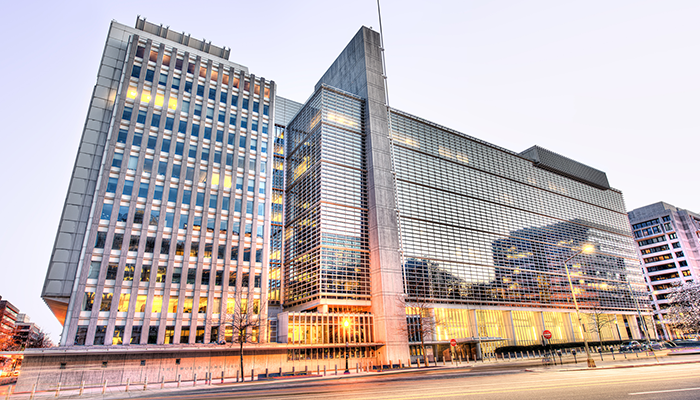web_world_bank_istock-817682226.png

The World Bank headquarters. Image © iStock
The latest landmark report, released twice a year, projects global GDP will increase by 4.1% this year, down from last June’s prediction of 4.3% and much lower than 2021’s growth figure of 5.6%.
World Bank group president David Malpass said problems are being felt particularly by poor countries.
“Developing countries are facing severe long-term problems related to lower vaccination rates, global macro policies and the debt burden,” he said at an event launching the report.
“There's a growing canyon between their growth rates and those in advanced economies.
This inequality is even more dramatic in per capita and median income terms, with people in the developing world left behind and poverty rates rising.”
Malpass described “troubling reversals” in progress on poverty, nutrition and health, and said he was particularly worried about the effects of lost time in schools due to lockdown measures and underfunding.
He said the number of 10-year-olds in low and middle-income countries who cannot read a basic story has risen from 53% to 70%, which could leave a “permanent scar” on development.
The World Bank warned that extraordinary fiscal and monetary policy, used especially in advanced economies which tend to have more flexibility to do so, might be hurting the economy.
“The concern is that the huge borrowing by advanced countries reduces the amount of money available for others,” he said.
He added that it is hard for governments to find useful things to invest in now, meaning spending crowds out small businesses and hinders growth.
Monetary policy, specifically major central banks borrowing huge amounts of bank reserves to maintain their bond and mortgage portfolios, has had the same effect on small businesses, according to Malpass.
“This is one factor in the supply chain problems,” he said, referring to one of the most commonly cited causes for current rampant inflation.













